Pregnancy can give you glossy, thick hair and a beautiful baby bump, but your glowing skin can soon turn to a blush when it comes to pregnancy's more quirky 'side effects'.
With all the changes, we've listed 15 pregnancy problems that can be a little bit 'embarrassing (plus the causes and treatments to help you feel back to your usual self!)
embarrassing pregnancy problems
 1 of 15
1 of 151) Gas and burping
Hormone progesterone is your baby’s best friend but can lead to embarrassing problems for you as it relaxes your intestines and slows digestion. Coupled with increasing pressure on your abdomen, there’s plenty of places for gasses to get trapped!
Bump band-aid: Wear loose clothing, eat small meals and keep a food dairy to identify triggers. “A lot of women suddenly switch to a strict diet of pulses and vegetables when pregnant,” says midwife Annabel Athill, from Kensington Midwives. “So if you’re not used to them, introduce gradually!”
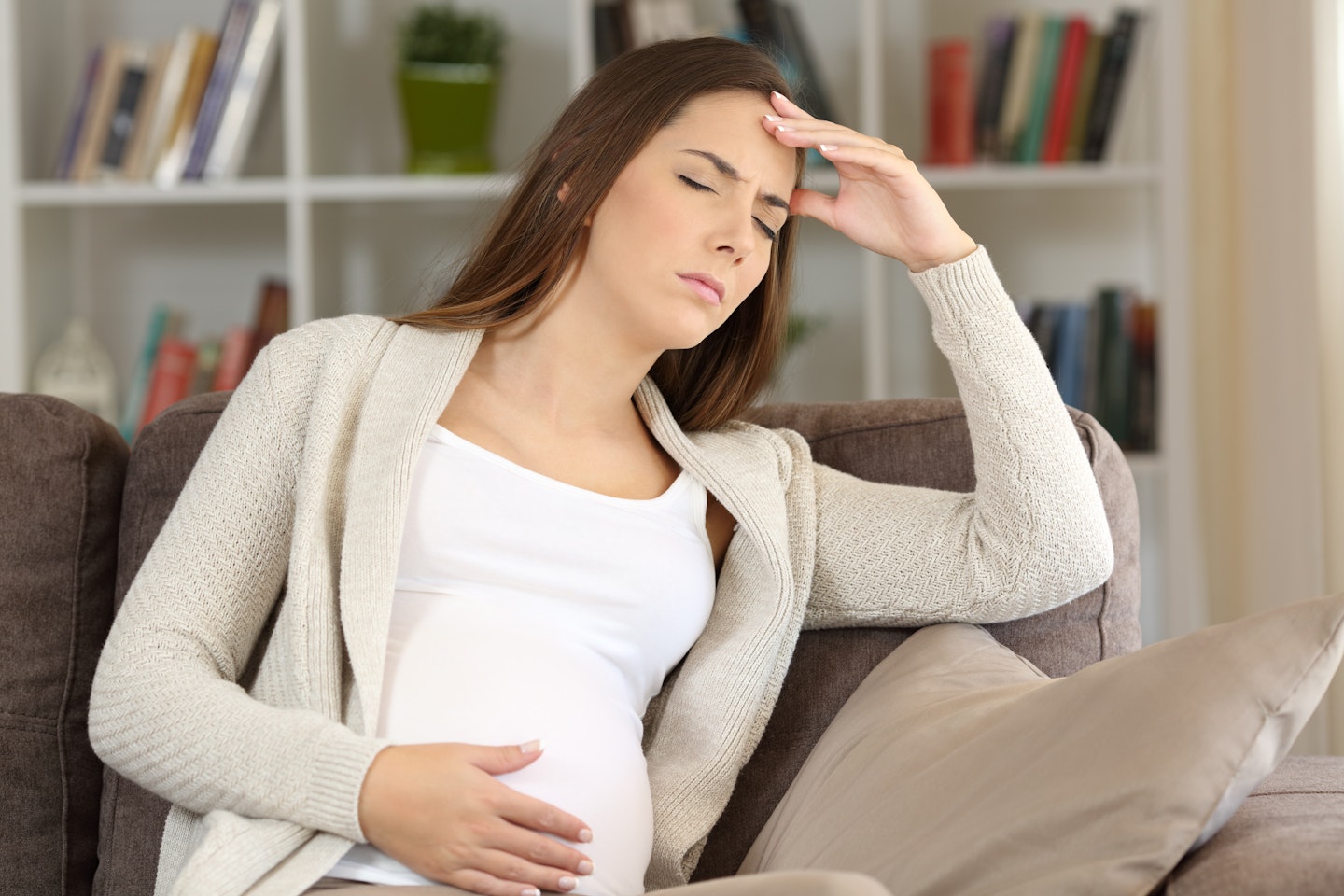 2 of 15
2 of 152) Constipation
Progesterone bungs you up, but iron supplements can make it worse.
Bump band-aid: “Ask the pharmacist for a liquid iron solution, which absorbs better, and introduce liquidized soups to get things moving,” suggests Athill.
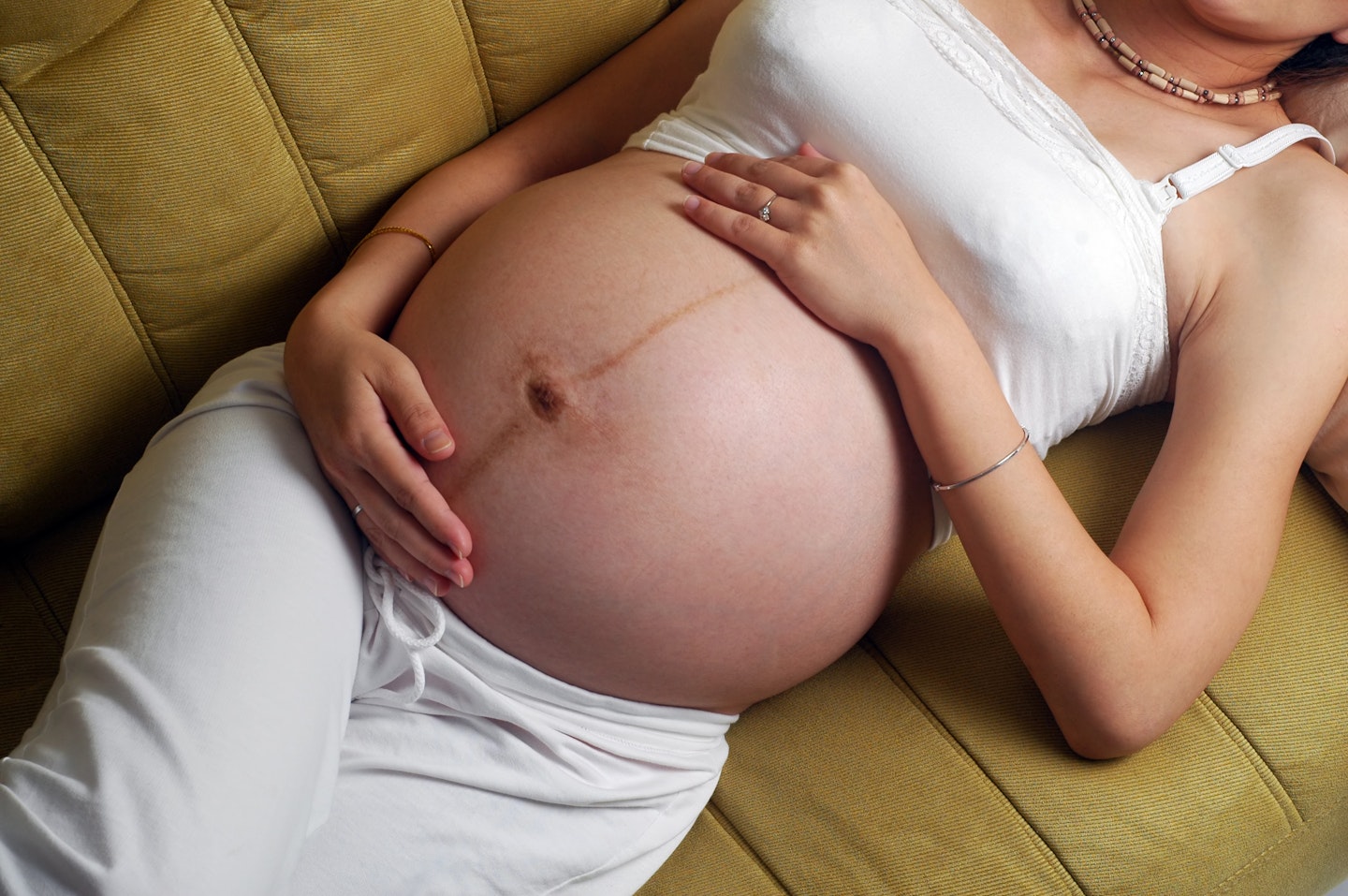 3 of 15
3 of 153) Linea Nigra
Your belly can resemble a globe map during pregnancy with lines, veins and skin discolourations becoming more prominent. The darkening stripe between your belly button and pelvis is called the Linea Nigra, Latin for ‘black line’, which develops due to skin pigmentation changes.
Bump band-aid: The line was always there but you probably didn’t notice it, and will fade after labour. “If you feel self conscious, use tinted moisturizer or foundation to make it less visible,” says Dr Sweta Rai of the British Association of Dermatologists.
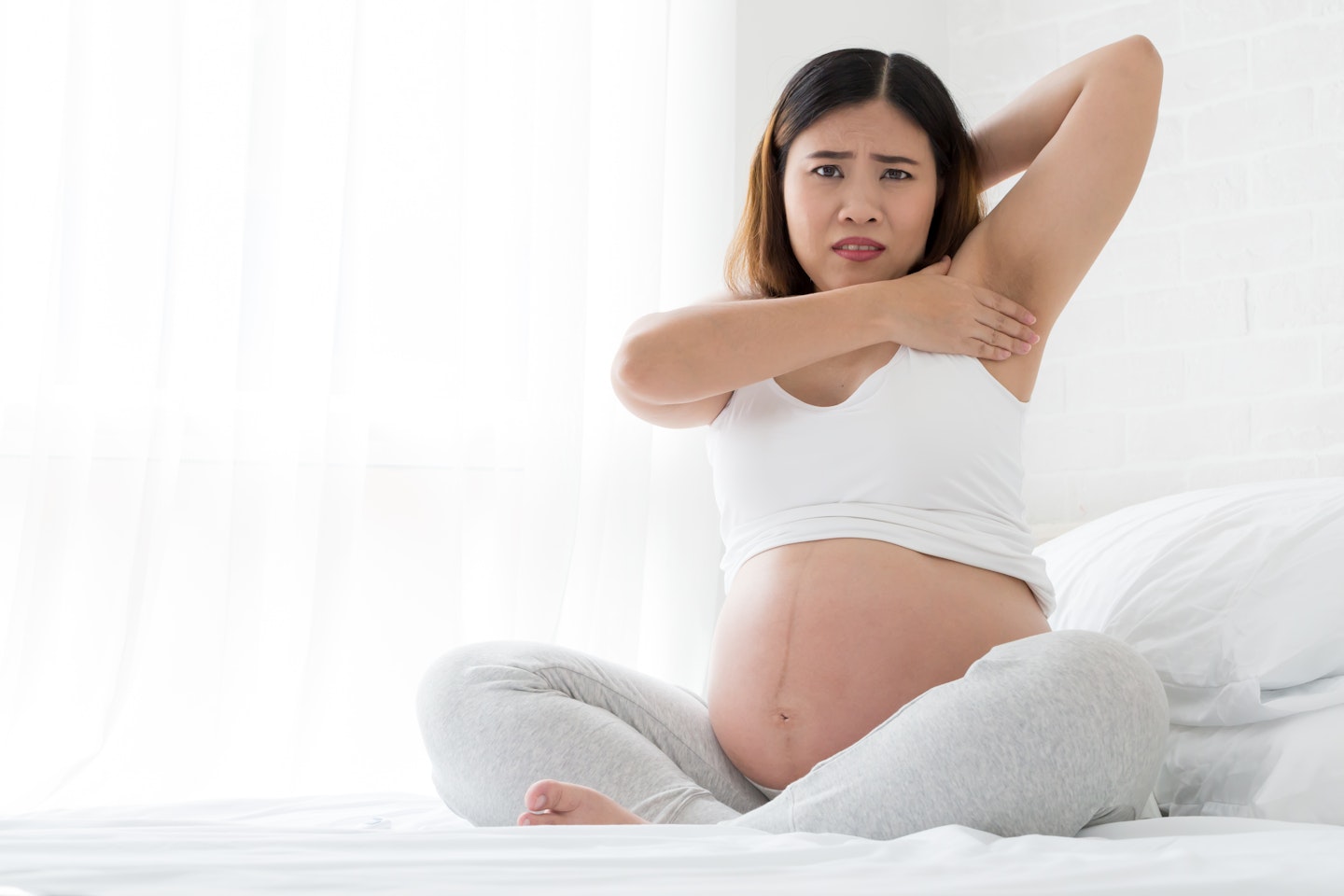 4 of 15
4 of 154) Sweating
Excess blood flow and hormones increases body temperature and fluids.
Bump band-aid: Drink more, take lots of showers and use talc to keep sweaty areas dry.
 5 of 15
5 of 155) Itchy or sore nipples
“Underlying eczema, asthma and hay fever worsen during pregnancy and because breasts become engorged they can itch too,” says Dr Rai.
Bump band-aid: “Use soap substitutes and a shower cream rather than a gel as it’s more moisturizing,” she suggests. And consider ditching the old bras for some new underwear, adds Athill. “Breasts will grow throughout pregnancy so it’s easy to end up with a badly fitting bra, which can lead to rubbing and itching, so get regular fittings.”
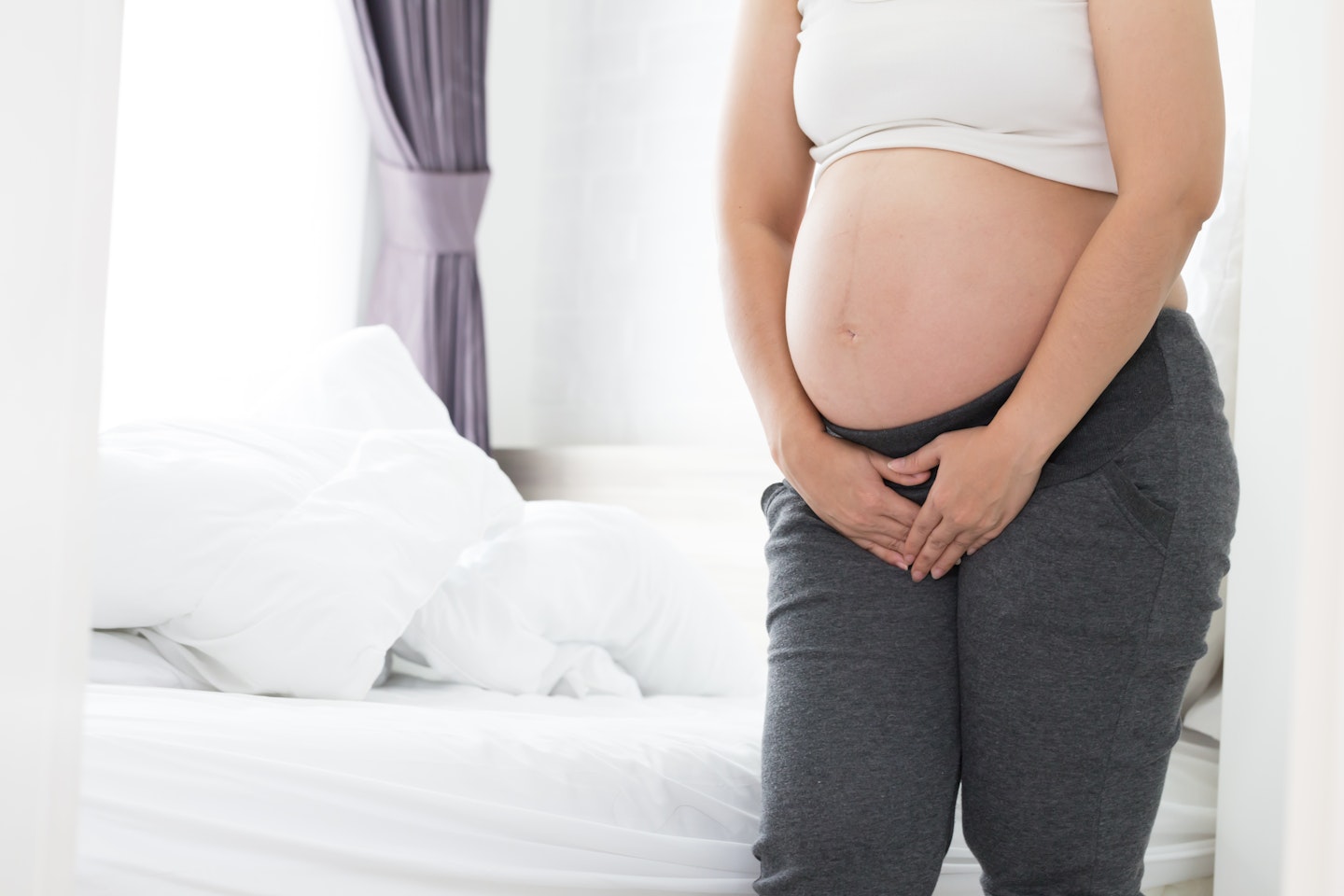 6 of 15
6 of 156) Leaky bladder
Had some near misses on your way to the loo? “It can come as quite a shock to discover a sneeze or cough can lead to an unexpected leak,” says Dr Joanna Helcké, pregnancy and postnatal fitness expert. “Visualize your torso as a shopping bag carrying a very precious load and at the bottom is your pelvic floor. These muscles play a very important role in keeping everything in!”
Bump band-aid: “It’s a very big hint that it’s time to start strengthening your pelvic floor,” says Joanna, founder of FitBumpBox, a pregnancy fitness and pelvic floor programme. “Ensure you pull up on the correct muscles (the ones you switch on to avoid passing wind in public!) and exercise daily with an app such as NHS Squeezy.”
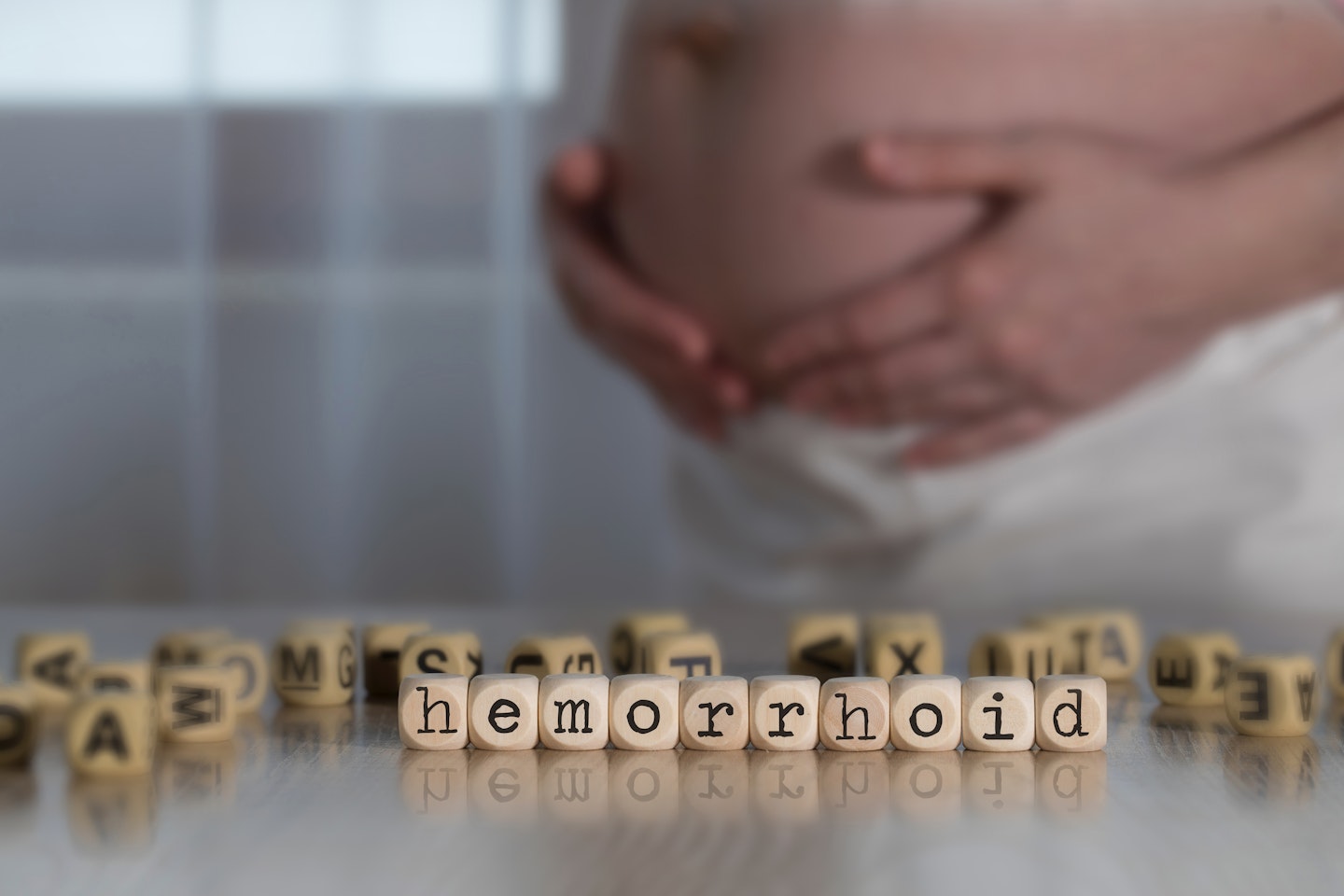 7 of 15
7 of 157) Haemorrhoids
Swollen itchy or bleeding veins around the rectum occur because the veins are more relaxed.
Bump band-aid: They should go away once baby arrives but in the interim, eat high-fibre foods and lots of water and avoid standing for long periods.
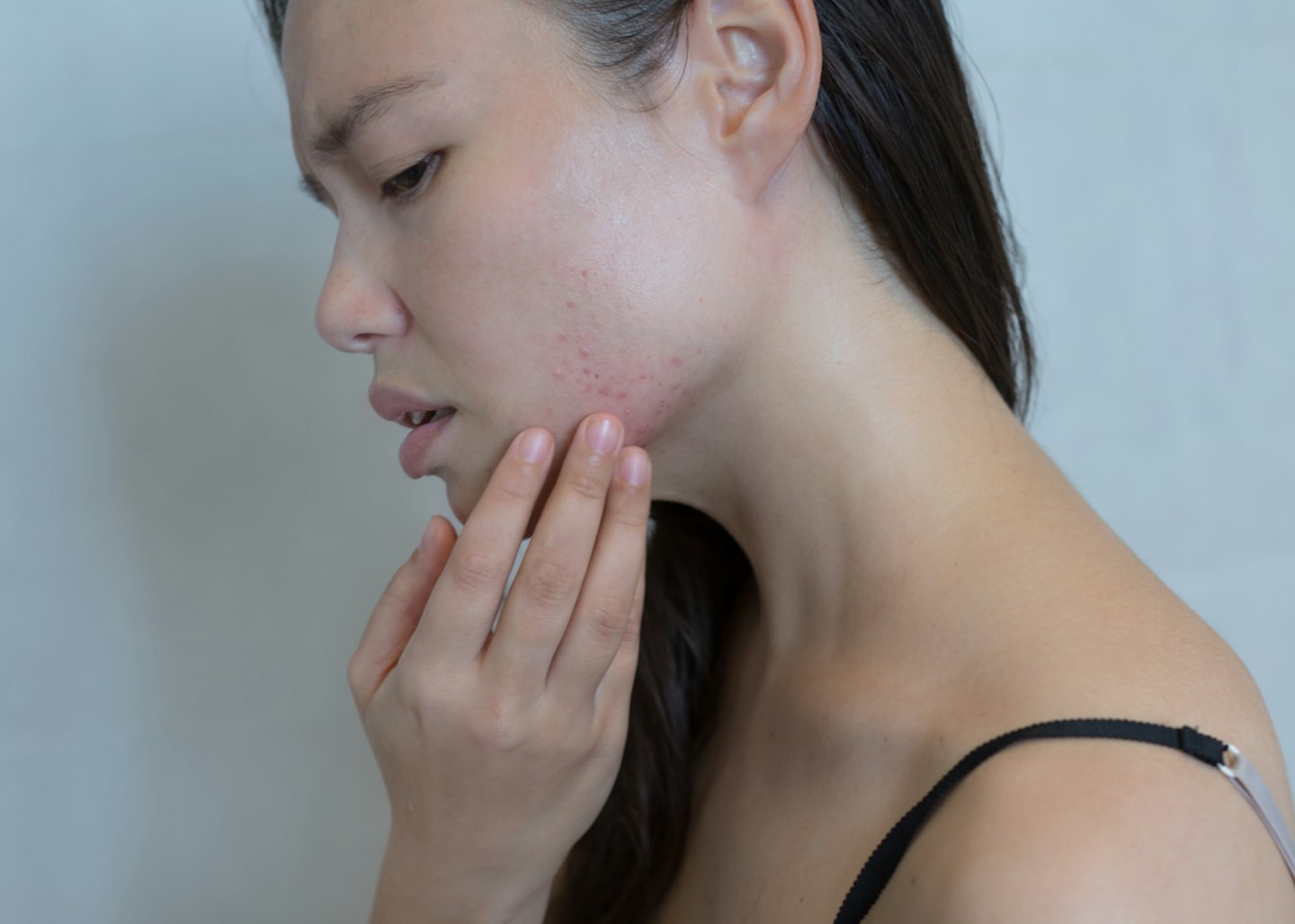 8 of 15
8 of 158) Acne
Breakouts like a teenager? “Hormone changes are to blame and in the first and second trimesters cause flare ups,” says Dr Rai.
Bump band-aid: Gently massage (don’t scrub) the face daily with a face wash. “Ones that contain salicylic acid are good,” she adds. “Use a non-comedogenic moisturizer with SPF too as these don’t clog pores and offer sun protection.”
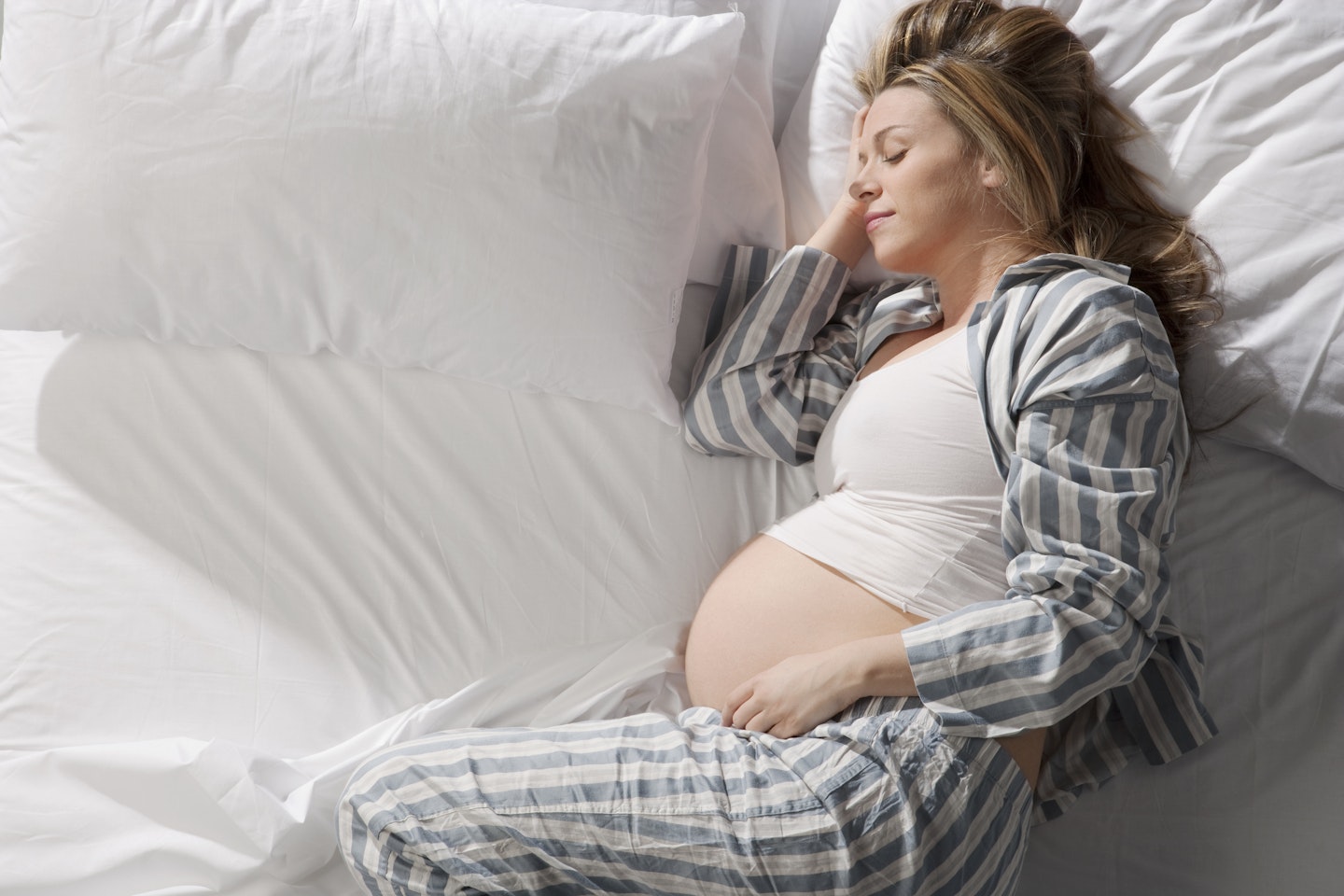 9 of 15
9 of 159) Strange dreams
With more blood flow to your nether regions, and raised oestrogen, lusty dreams and scary nightmares are all part of pregnancy sleep. “Part of the reason is the need to wake frequently to go to the toilet, which disturbs sleep patterns,” says Athill.
Bump band-aid: No dream-reading is needed: enjoy the sexy dreams and ignore the not-so-nice ones, they will pass in time.
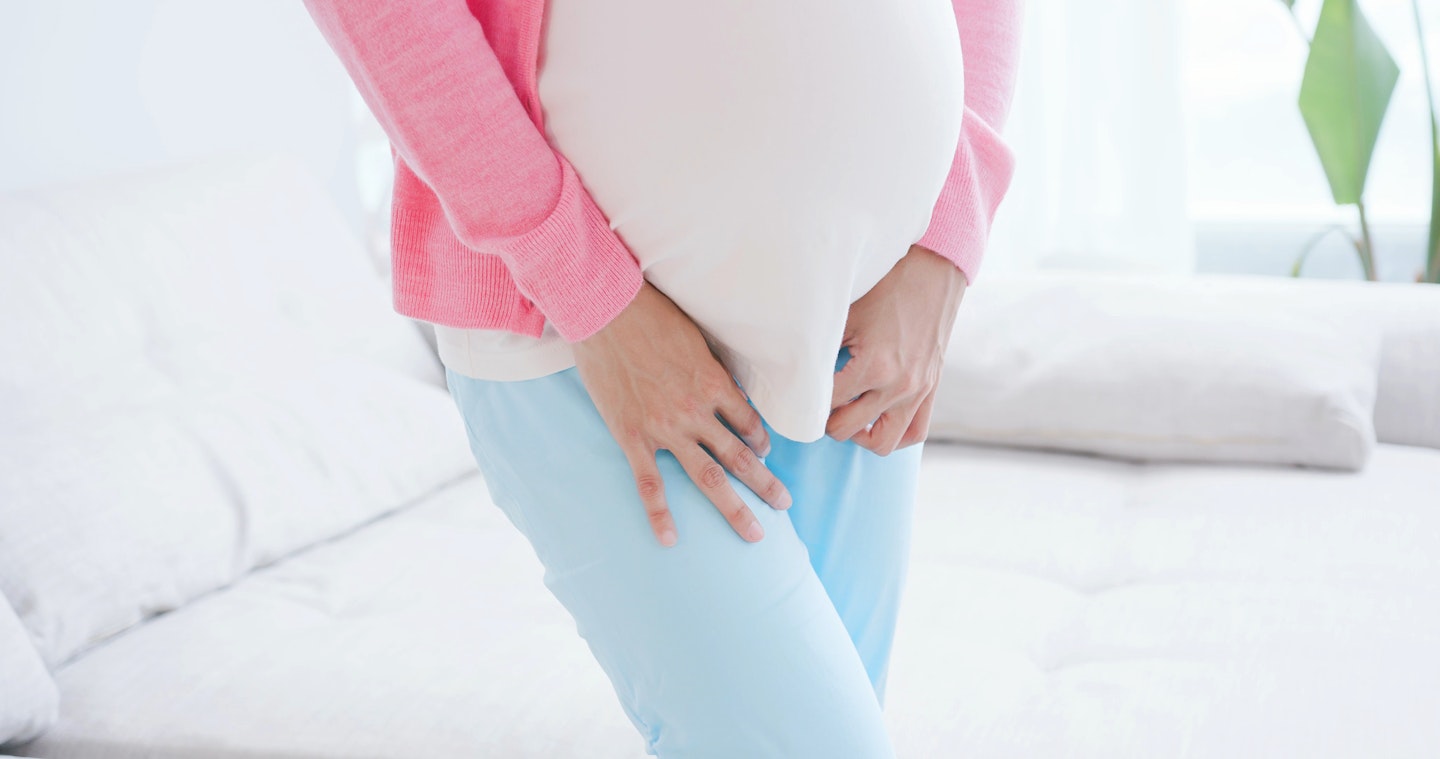 10 of 15
10 of 1510) Increased discharge
With more blood flow in the body, especially around the cervix, vaginal discharge can also increase.
Bump band-aid: It’s all very normal, so wear cotton undies and buy panty liners and keep the area clean and dry, wiping from front to back and avoiding scented soaps. If there is blood in your discharge, it could suggest labour is imminent – and always seek advice if there is a strange smell or your discharge is green or grey.
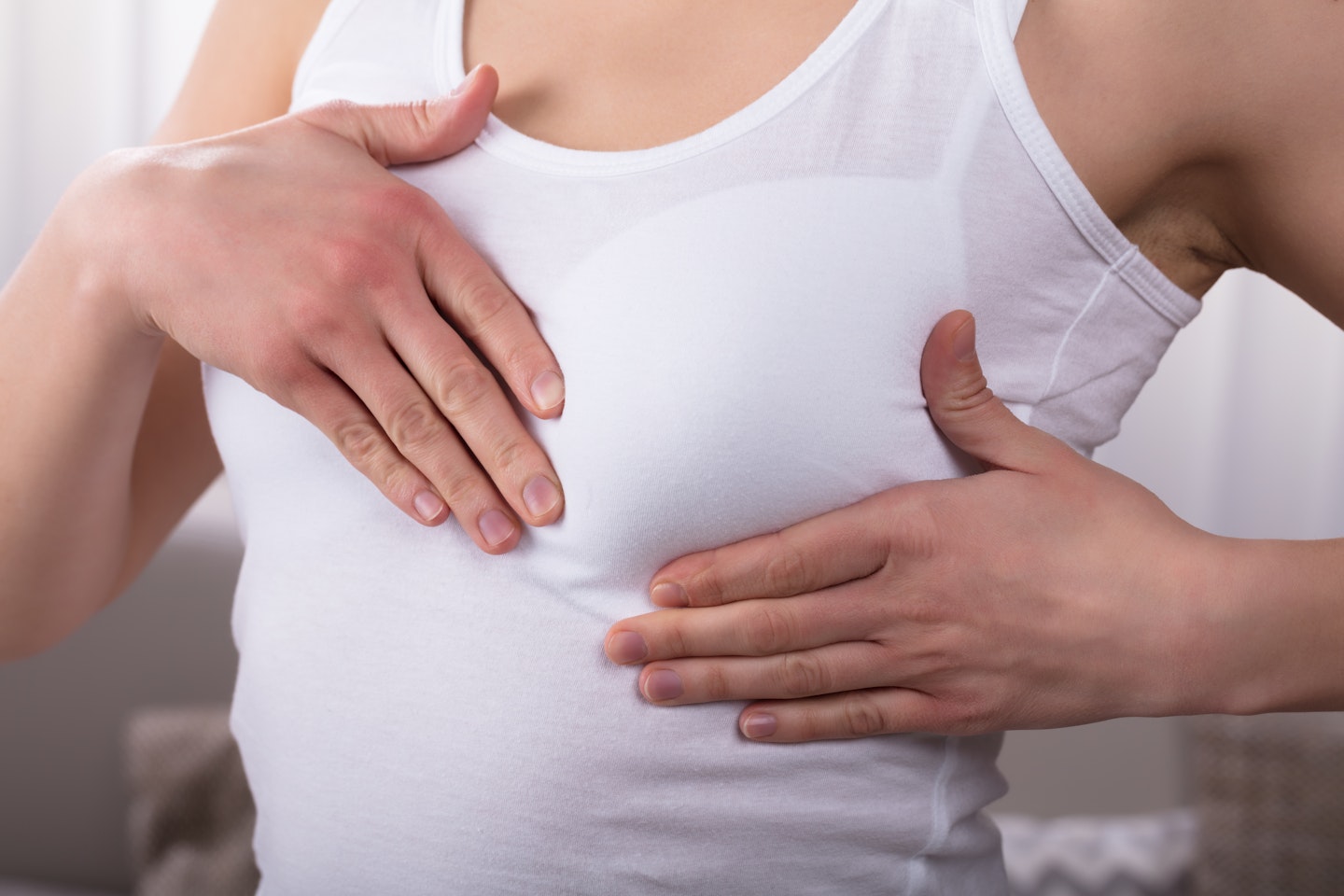 11 of 15
11 of 1511) Leaky breasts
“Your breasts start preparing for feeding, with colostrum being produced, very early on in the pregnancy, and in some women there is leakage,” says Athill.
Bump band-aid: Consider this a useful trial run! It’s usually unnoticeable, but nursing pads inside your bra can make you feel more comfortable.
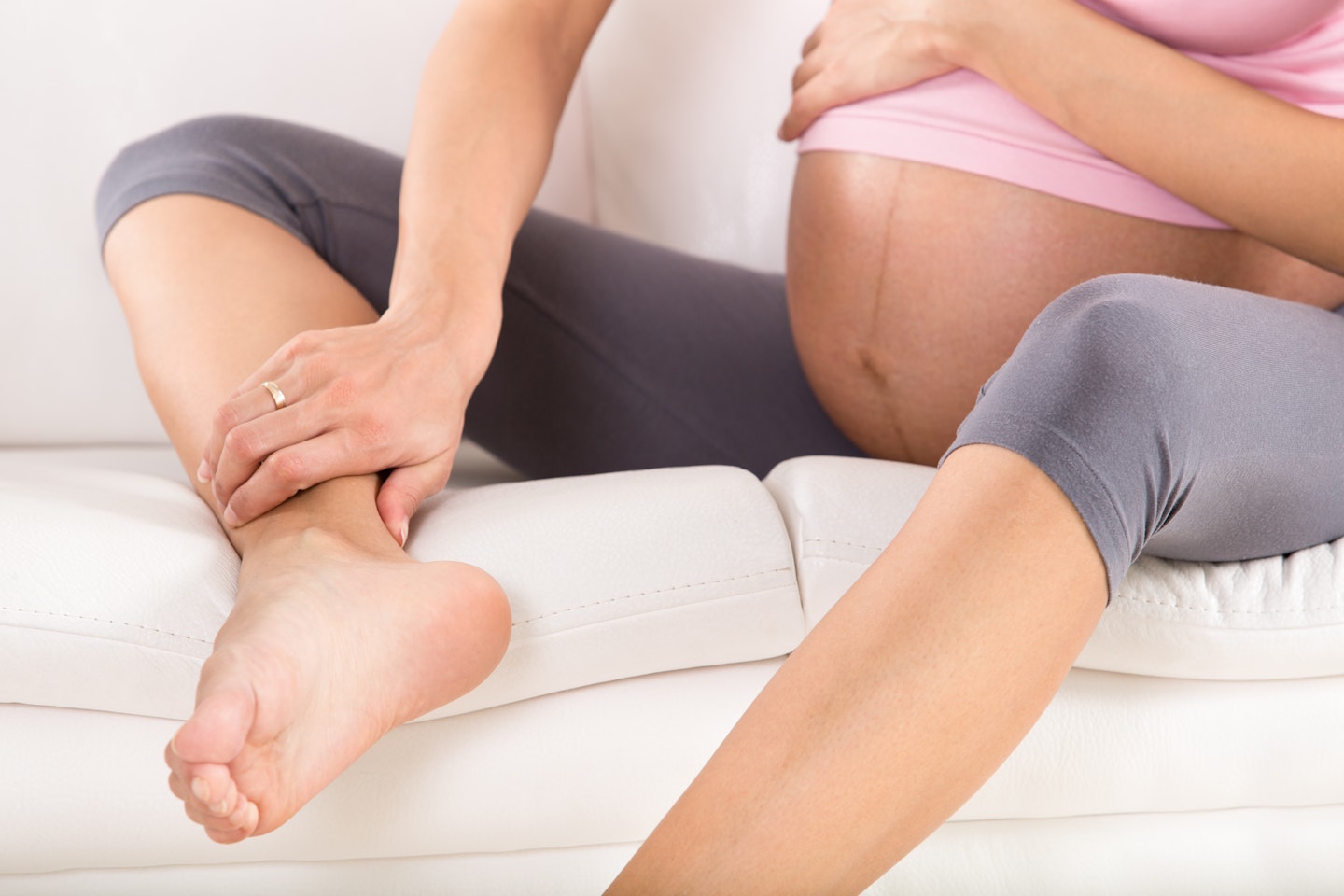 12 of 15
12 of 1512) Varicose veins
With the weight of a growing baby, placenta and uterus all weighing down on your veins, and more blood circulating, valves have to work twice as hard and can swell up.
Bump band-aid: They'll probably disappear after labour but if you have a family history try compression stockings. “Get measured up as soon as you’re pregnant,” says Dr Rai. “And keep moving as this will decrease the pressure on the valves.”
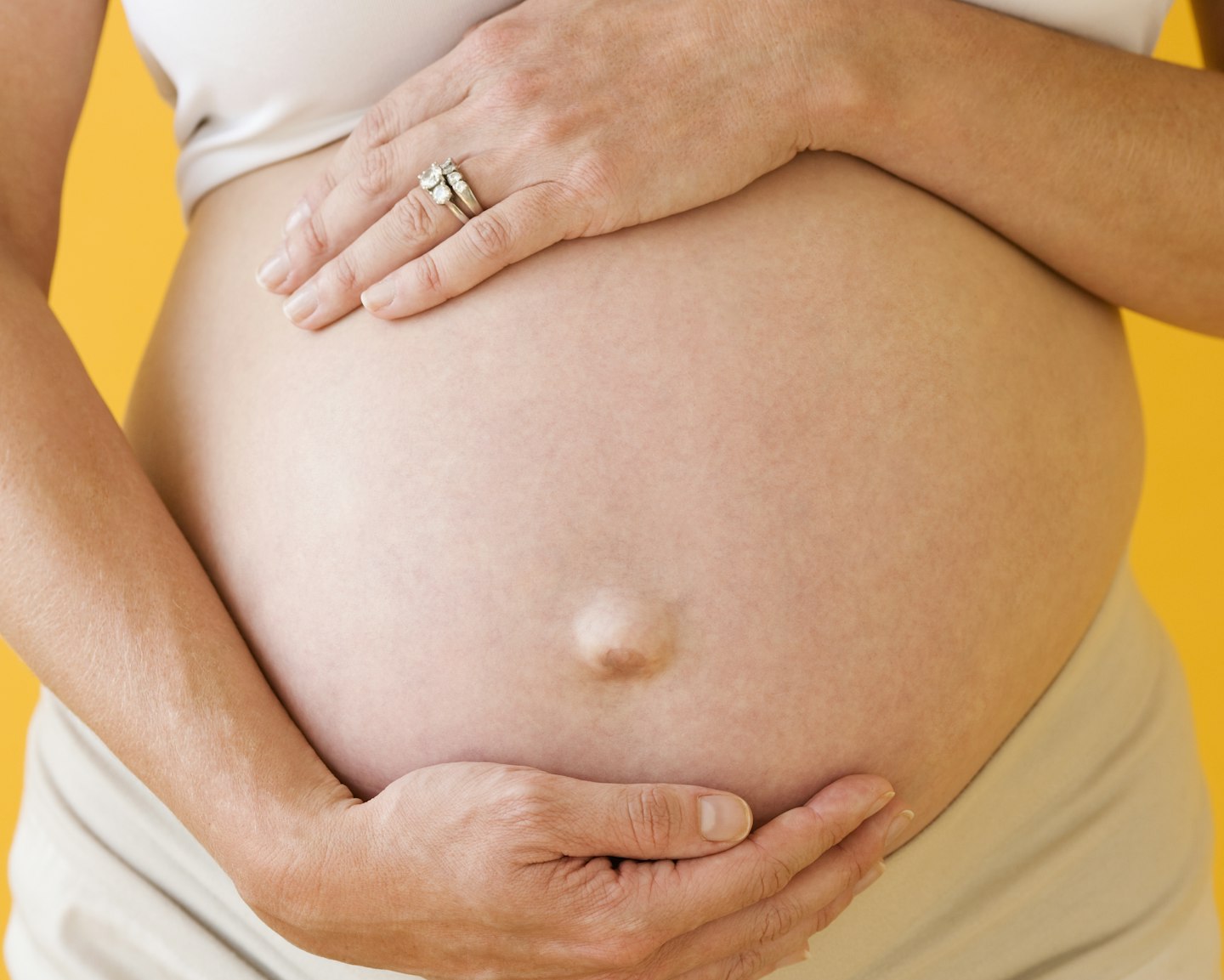 13 of 15
13 of 1513) Protruding belly button
An expanding uterus can push the tummy button forward, regardless of whether it’s an innie or outie!
Bump band-aid: Don’t worry, this will return to normal after the pregnancy.
 14 of 15
14 of 1514) Undesirable hair growth
While pregnancy probably won’t give you hairs on your chest, for some women raised androgen levels can increase the fuzz on the face.
Bump band-aid: Use hair removal cream, which is kinder than waxing or shaving – and don’t worry about it causing excessive hair growth afterwards. This is a myth,” says Dr Rai. “The regrowth is coarser so we notice it more, but there isn’t more of it.”
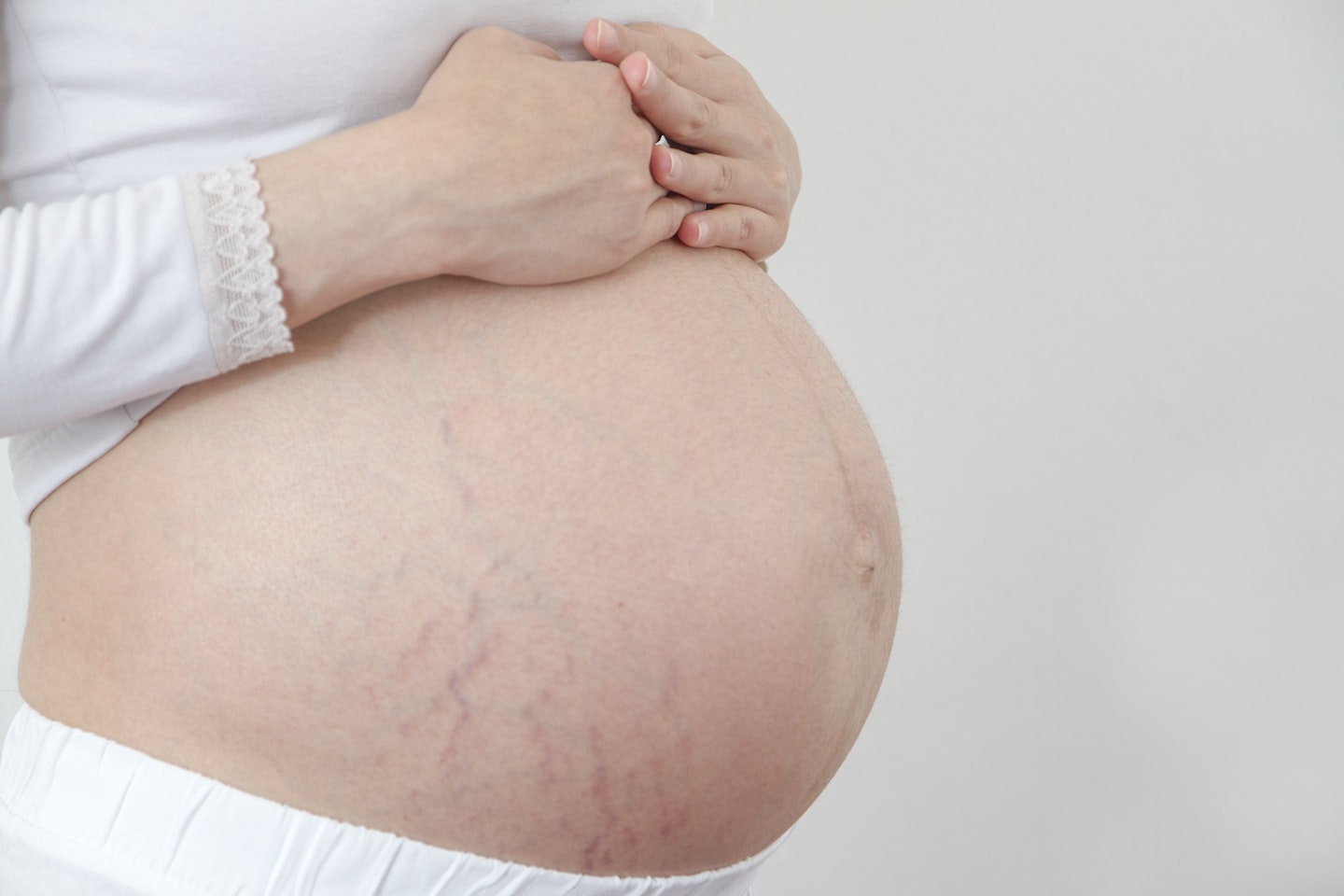 15 of 15
15 of 1515) Stretch marks
It’s thought nine out of ten women get these silvery lines during pregnancy, which happen because the elastin in the skin stretches as you gain weight.
Bump band-aid: There’s no cure-all solution, but watching your weight (so it doesn’t creep up too fast) and taking gentle exercise can help. After pregnancy, if you want to get rid of them, laser treatments give good results.
Now read:
This site provides general information and discussions about pregnancy/health and related subjects. The information and other content provided on this site, or in any linked materials, are not intended and should not be construed as medical advice, nor is the information a substitute for professional medical expertise or treatment.
Always seek the advice of your doctor or your health care provider for professional medical advice. Never disregard professional medical advice or delay in seeking it because of something that have read on this site or in any linked materials.
